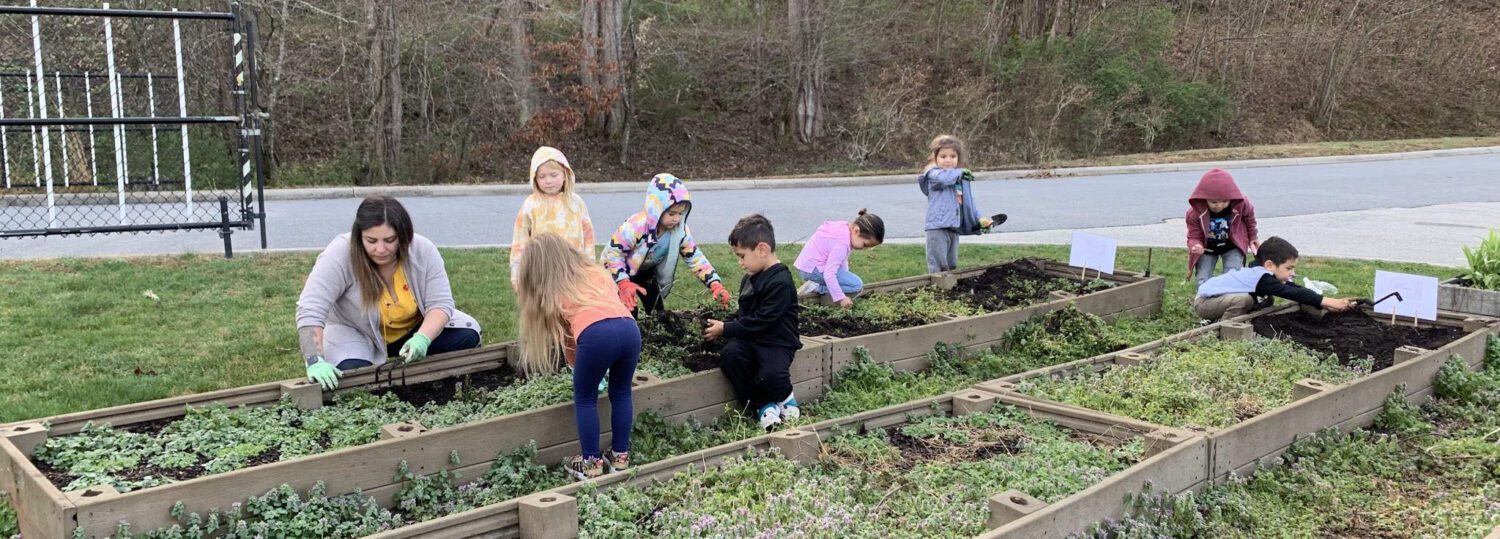CHEROKEE, N.C.—In collaboration with ASAP, a leading advocate for sustainable agriculture in western North Carolina, Nichole Efird is connecting her students at Cherokee Elementary School to their Cherokee heritage and raising their awareness of local agriculture.
Efird’s fellowship was made possible through the support of the Dogwood Health Trust and the Kenan Fellows Program for Teacher Leadership at N.C. State University. As a 2022-23 Kenan Fellow, Efird delved into the world of local farms, gaining first-hand insights into ASAP’s programs and outreach initiatives. This immersive experience fueled her ability to create engaging lessons that bridged the gap between young learners, the food they eat, and the principles of sustainable agriculture.
From Farm to Classroom
“Being able to visit and work at local farms gave me a better understanding of the farm-to-table concept and provided me with new ideas for the classroom,” Efird said. “I have been able to show my students all of the cool things I was doing each week by sharing pictures and videos of the farms I visited. The students became invested in my experiences which made them excited for each new lesson delivered in the classroom.”
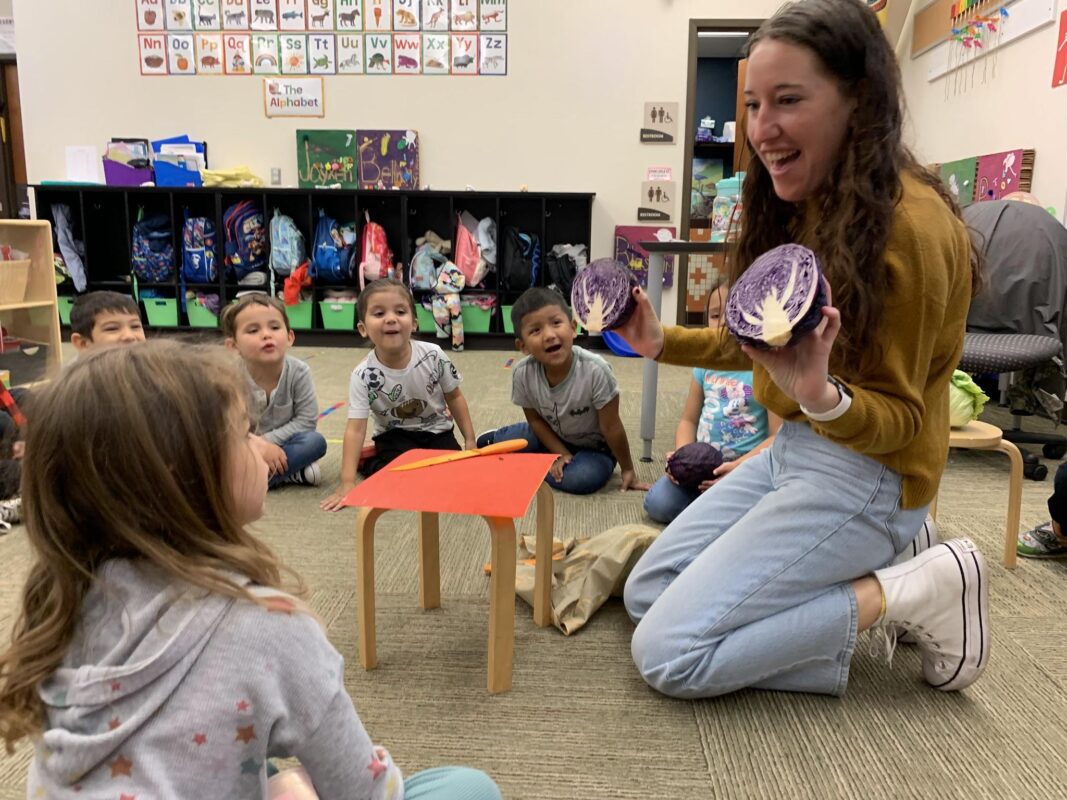
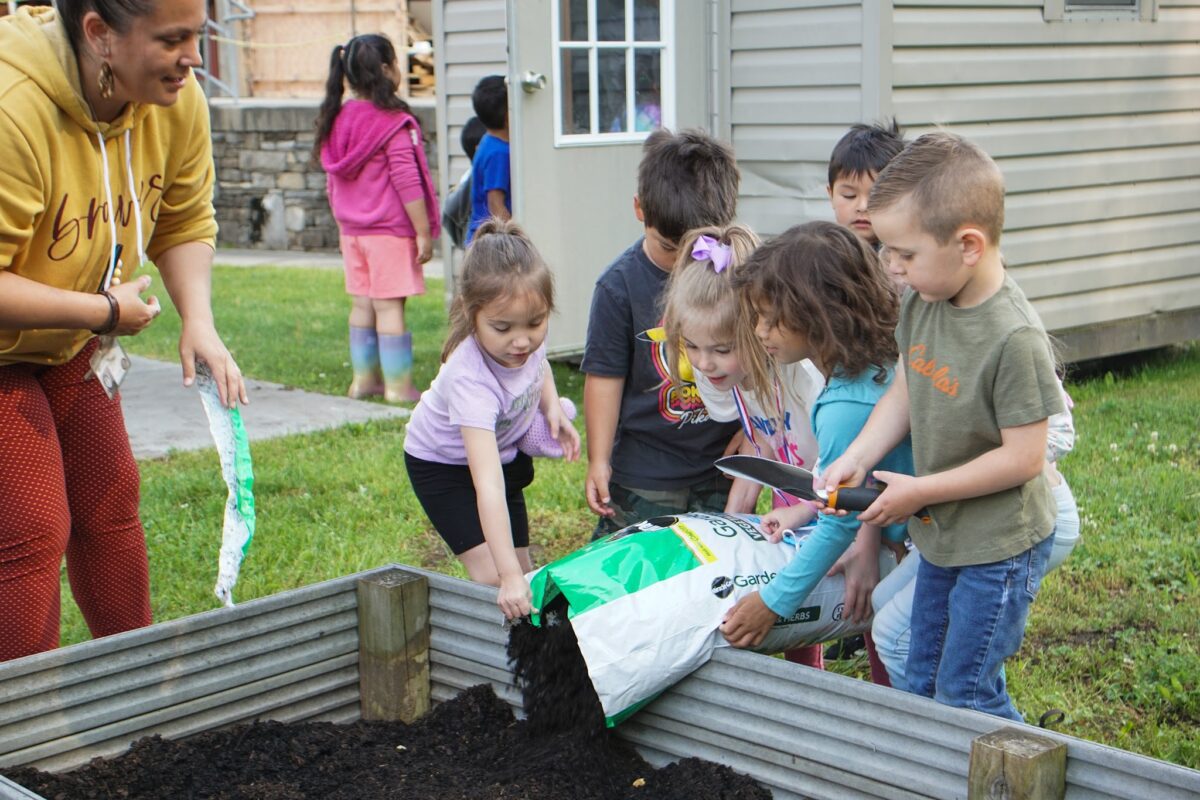
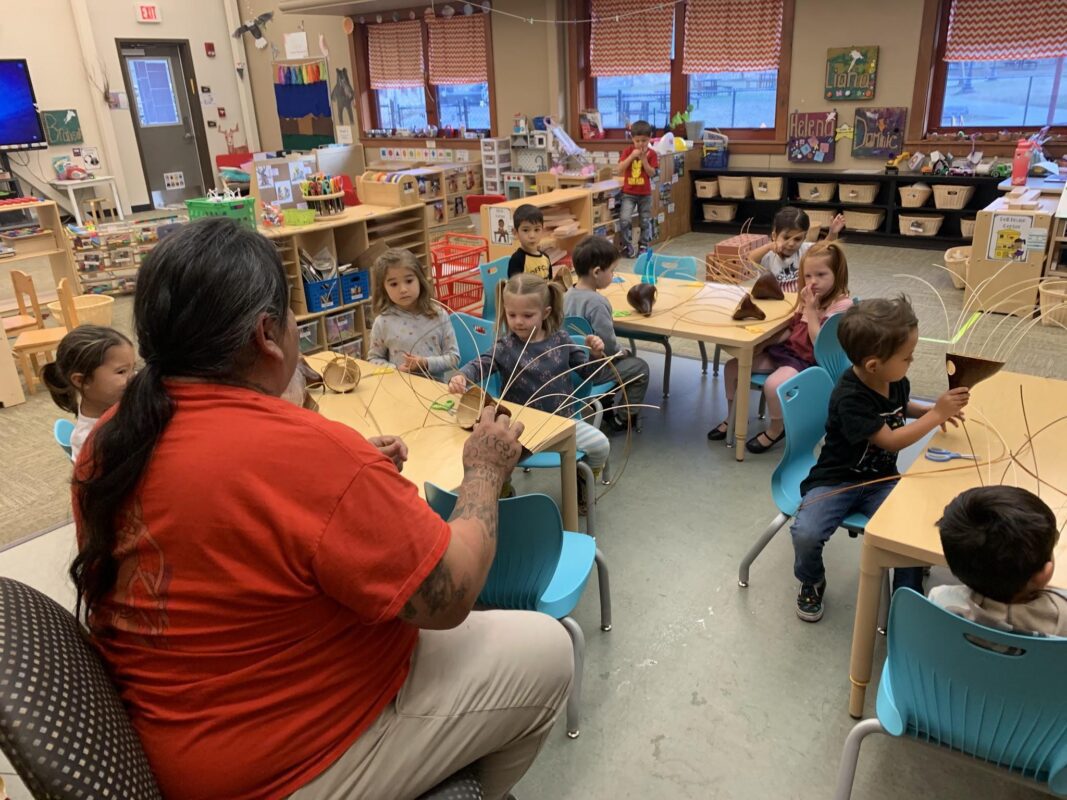
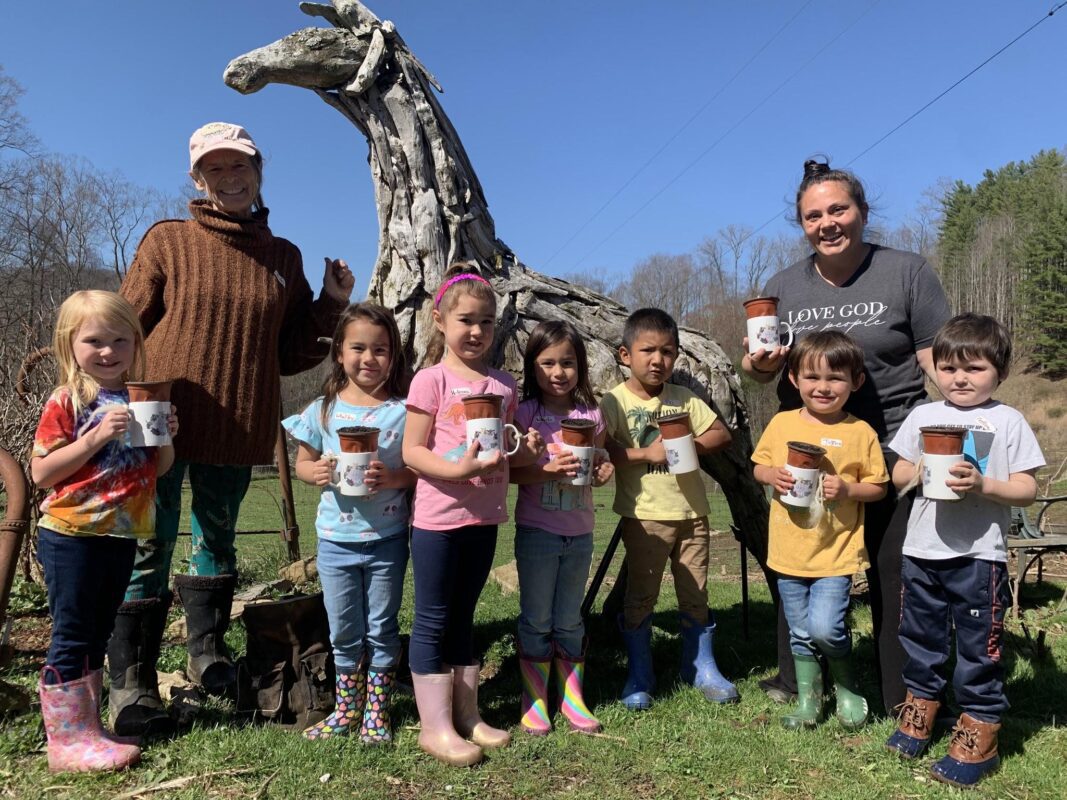
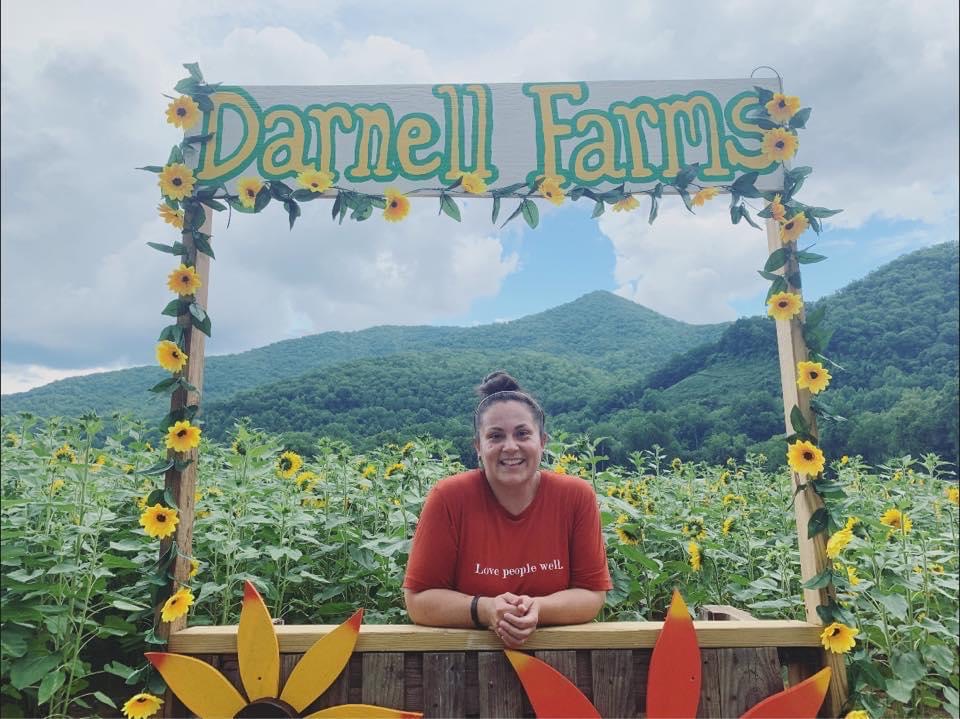
Efird has built lasting connections between ASAP and the Cherokee Elementary School community. ASAP provided a bridge for Efird to weave her student’s cultural heritage with sustainable practices. This collaboration has resulted in engaging in fresh produce tastings, reading ag-related books, and the development of an innovative curriculum that resonates with her pre-kindergarten students.
Weaving Cherokee Heritage with Agriculture
“I teach on the Qualla Boundary and our student population is 99% Cherokee. I wanted to be able to find a way to connect our culture to traditional ag practices,” Efird said. “Over the last year ASAP representatives have come to my classroom to share resources and they have provided me with an entire curriculum from their farm to preschool toolkit.”
The toolkit is loaded with recipes and activities to enhance the hands-on learning experiences for students. With the toolkit, along with the grants and resources from ASAP and its programs, Efird’s class was able to witness the cycles of farm life firsthand, grow their own food, experiment with recipes, and create labels for the school garden.
“These experiences have helped me become more confident in teaching agricultural content because of the hands-on experiences and increased knowledge I gained through my internship with ASAP.”
Nichole Efird, 2022-23 Kenan Fellow
Planting Seeds of Knowledge
Throughout the year, Efird has facilitated a series of agricultural-themed lessons that captured her students’ interest. Topics ranged from learning about the anatomy of an apple to the intricacies of apple orchards that supply supermarkets. One notable highlight was her class’s participation in North Carolina Crunch, an event promoting healthy eating and farm-to-school initiatives. For this occasion, her students shared locally sourced apples with the entire school, leading a hands-on exploration of various apple varieties.
“Our class selected four different apples for the event and made stickers and posters for other students to vote for their favorite apple,” Efird said. “We hung up the signs, set up the tables, and chopped four bushels of apples. Students in grades pre-k to fifth tried the apples. My students were in charge of telling them the names of the apples and the name of the orchard.”
Exploring Local Agriculture
Efird’s partnership with ASAP opened opportunities for her students to experience agriculture in action. Local farmers have welcomed her class allowing them to see the processes behind dairy farming, poultry farming, and wool and fiber production. These firsthand encounters brought learning to life as students witnessed how cows are milked and the pasteurized milk is transported. They were also able to feed horses, alpacas, llamas, goats, and Highland cows and taste hard-boiled eggs from local chickens.
“ASAP has been incredibly generous with their resources and their time. They have an open door to my classroom and they have connected me with other school districts to share some of the ways we have combined Cherokee culture with agriculture in the classroom,” Efird said. “We also have a couple of local farmers lined up to visit our classroom this year and look forward to a new and improved school garden. One of the things we are most excited about is the addition of a classroom kitchen that was funded by ASAP. We now have all of the tools we need to try out new recipes and cook produce from our own garden.”
Rekindling a Passion for Teaching
Reflecting on her journey, Efird attests to the profound impact of the Kenan Fellows Program on her professional growth. This experience reignited her passion for teaching and bolstered her confidence as an educator. She shares, “When I applied for a fellowship, I was at a low point in my teaching career; wondering if I was still where I was supposed to be. By the end of the Summer Institute my heart was so full and my love of teaching had been renewed.”
